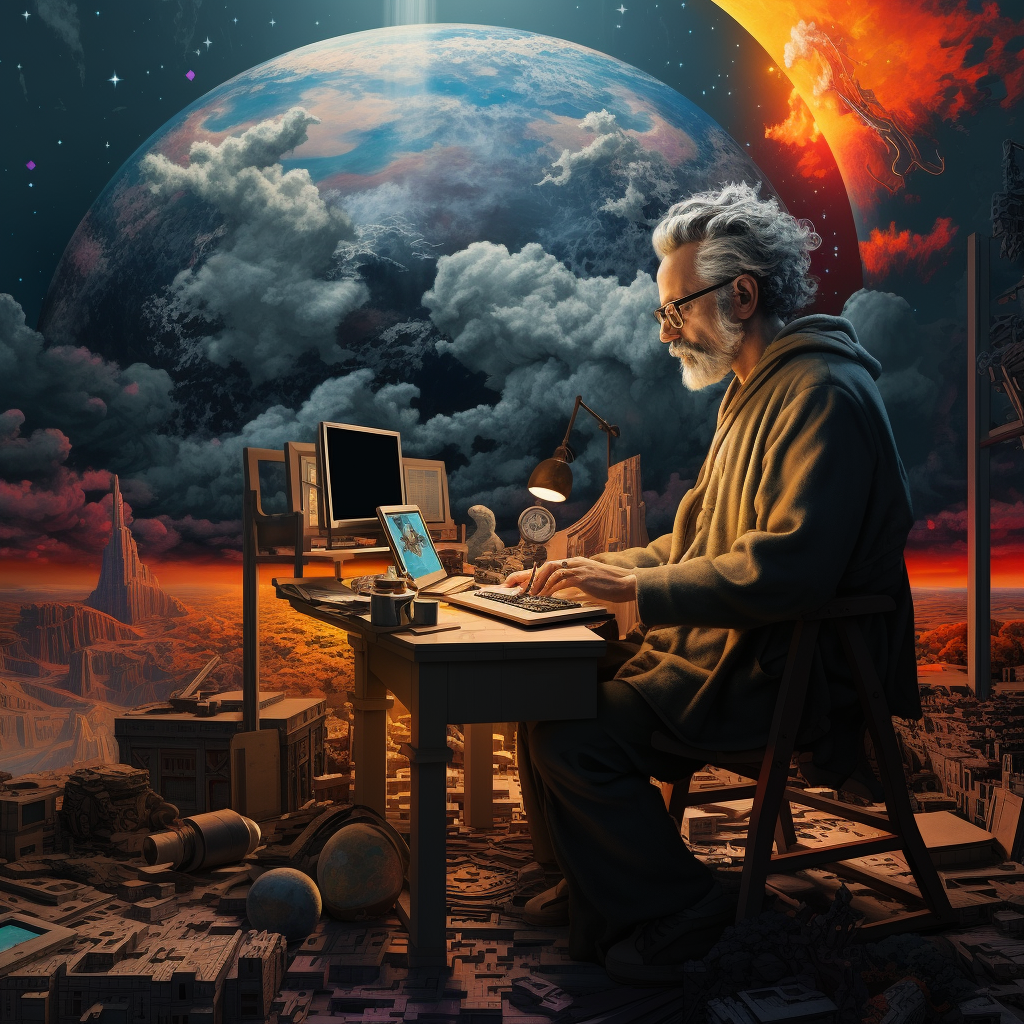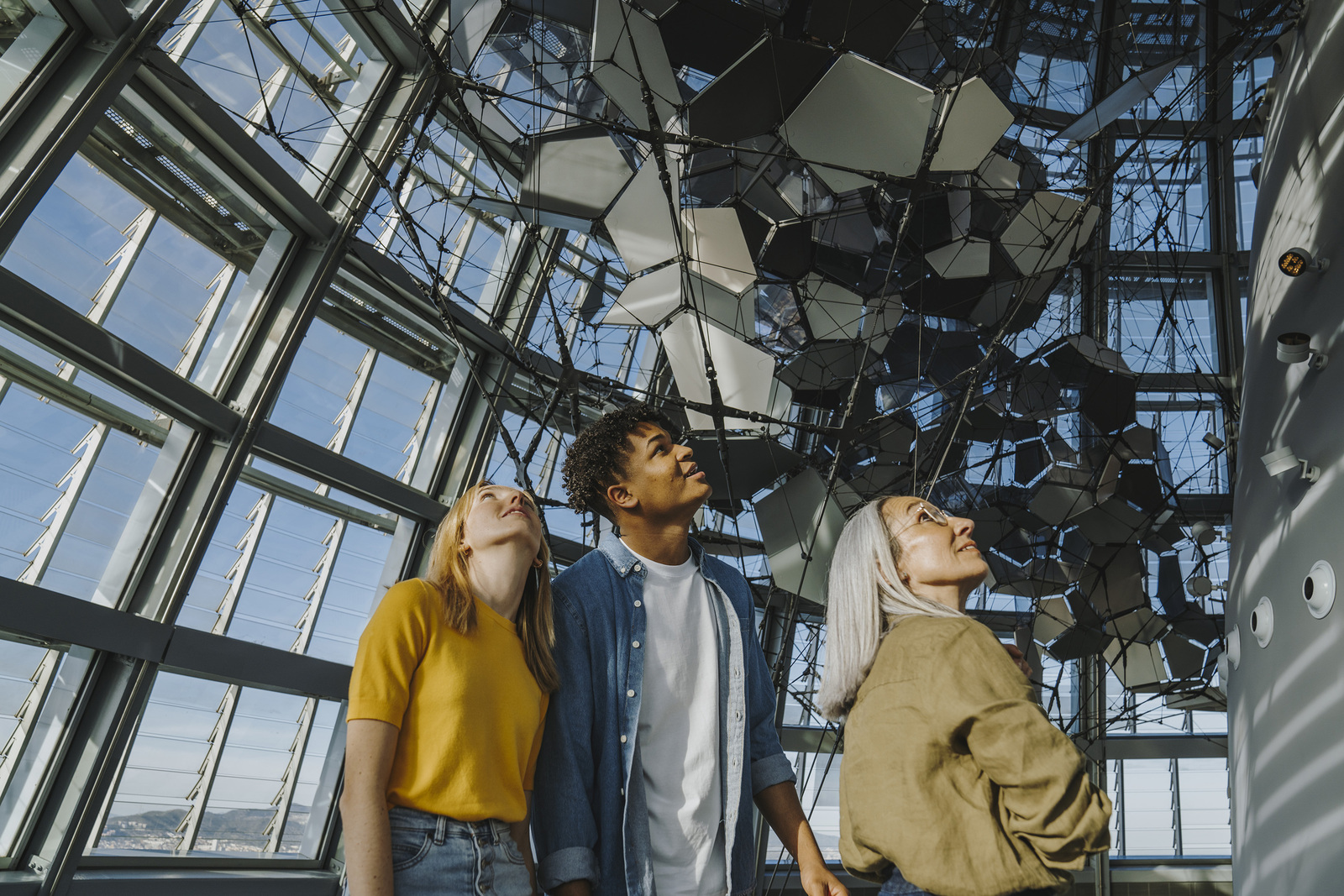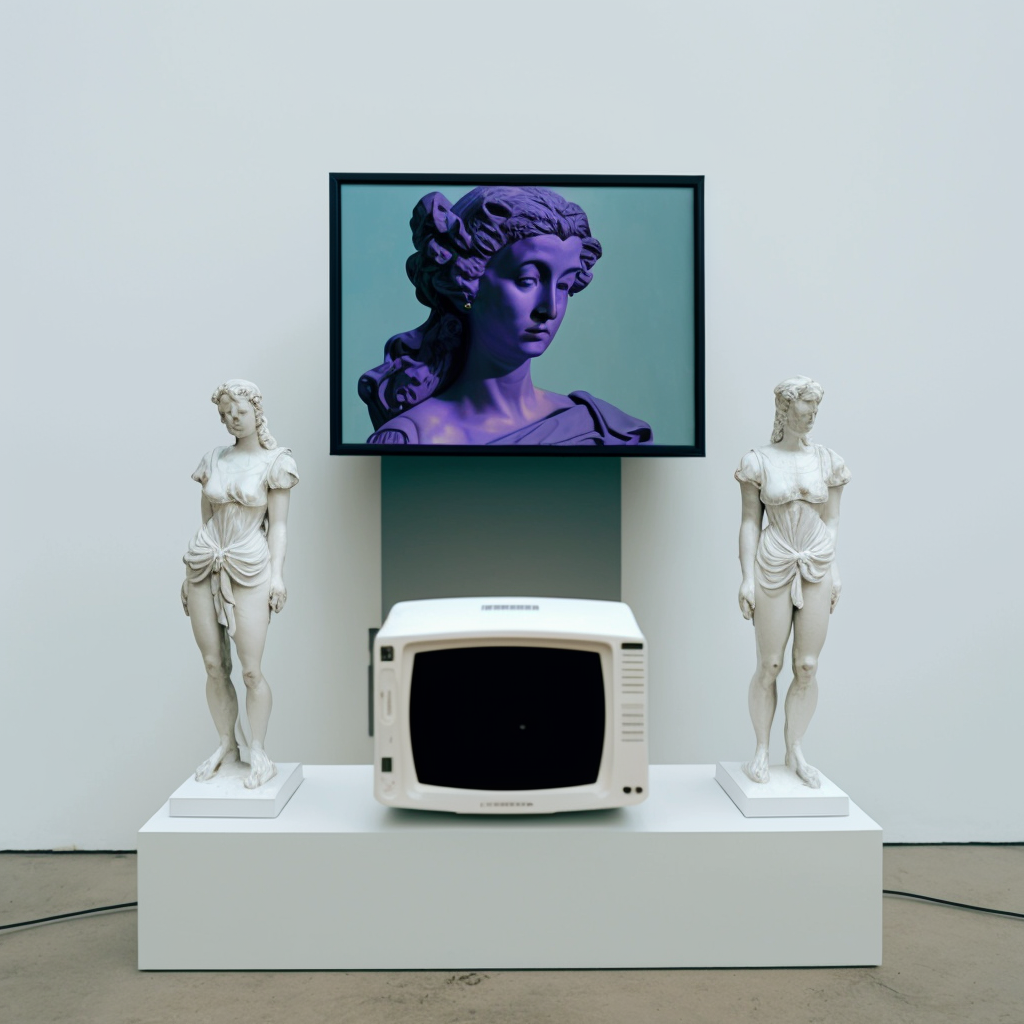Contents
- 1 It is understanding NFT digital ownership and its significance.
- 2 How NFTs work in the context of digital ownership.
- 3 The benefits of NFT digital ownership for creators and collectors.
- 4 The legal implications of NFT digital ownership and its impact on copyright laws.
- 5 The future of NFT digital ownership and its potential impact on the art world and beyond.
- 6 Risks associated with NFT digital ownership, including security concerns and environmental impact.
- 7 How to get started with NFT digital ownership as a creator or collector
It is understanding NFT digital ownership and its significance.
NFT digital ownership is the latest innovation in the world of blockchain technology. NFTs, or non-fungible tokens, are unique digital assets verified on a blockchain network, such as Ethereum. Unlike traditional cryptocurrencies like Bitcoin, each NFT is one-of-a-kind and cannot be exchanged for another token. This means that NFTs can be used to prove ownership of digital assets, such as artwork, music, videos, and even tweets and memes.
The significance of NFT digital ownership lies in its ability to solve the problem of digital scarcity. In the past, digital assets could be easily replicated and shared without proof of ownership or authenticity. With NFTs, creators can now prove they are the rightful owners of their digital creations and even sell them as unique collectibles. This has opened up new revenue streams for creators, who can now monetize their work in ways that were previously impossible.
But it’s not just about making money – NFT digital ownership offers greater control over digital creations. Creators can set rules around how their NFTs can be used and even receive royalties every time their NFT is sold or traded. This means that creators can continue to benefit from their work long after it has been sold.
Overall, NFT digital ownership represents a significant shift in how we think about ownership and authenticity in the digital realm. It offers new opportunities for creators and collectors alike and has the potential to revolutionize industries beyond just art and music. As we dive deeper into the world of NFTs, we will explore how this technology works and what it means for the future of digital ownership.
How NFTs work in the context of digital ownership.
Now that we understand the significance of NFT digital ownership let’s dive into how NFTs work in the context of digital requests. As we mentioned earlier, NFTs are unique digital assets that are verified on a blockchain network. When a creator wants to sell an NFT, they must first mint it on a blockchain network, which involves creating a smart contract that defines the rules around the NFT. Once the NFT is minted, it can be sold on various marketplaces or even auctioned off.
When a collector purchases an NFT, they receive a unique token that proves their ownership of the digital asset. This token is stored on the blockchain network and can be viewed by anyone. Because each NFT is unique, collectors can be sure they own something that cannot be replicated or exchanged for another token.
One of the critical benefits of NFT digital ownership is that it enables creators to receive royalties every time their NFT is sold or traded. This is made possible by the smart contract created when the NFT was minted. The smart contract can include rules around how much the creator receives in royalties and how often they are paid.
Overall, NFTs offer a new way to think about ownership and authenticity in the digital realm. They enable creators to monetize their work in ways that were previously impossible and offer collectors a unique opportunity to own one-of-a-kind digital assets. As we continue to explore the world of NFT digital ownership, we will look at some of the benefits and risks associated with this technology and what it means for the future of ownership and creativity.
The benefits of NFT digital ownership for creators and collectors.
NFT digital ownership offers numerous benefits for both creators and collectors. For creators, NFTs provide a new way to monetize their work and receive recognition. With NFTs, creators can sell their work as unique collectibles, which can help to increase its value and demand. Additionally, creators can set rules around how their NFTs can be used, which can help to protect their intellectual property and ensure that their work is used in ways that align with their values.
NFT digital ownership also offers benefits for collectors. Collectors can own one-of-a-kind digital assets that cannot be replicated or exchanged for another token. This means owning an NFT is more than just a bragging right – it’s a unique piece of digital art or memorabilia with real value. Additionally, owning an NFT can offer collectors a sense of connection to the creator and their work, as they know they support the creator directly.
Another benefit of NFT digital ownership is the potential for increased revenue streams for creators. Because creators can receive royalties every time their NFT is sold or traded, they have the potential to earn ongoing income from their work. This means that NFTs offer a new way for creators to make money from their work long after selling it.
Overall, NFT digital ownership offers a range of benefits for both creators and collectors. It represents a new way to think about right and authenticity in the digital realm and has the potential to revolutionize industries beyond just art and music. As we explore this technology, we will examine some of the legal implications of NFT digital ownership and what it means for copyright laws.
The legal implications of NFT digital ownership and its impact on copyright laws.
As NFT digital ownership becomes more popular, there are growing concerns about its legal implications and impact on copyright laws. Because NFTs are a new technology, there is still a lot of uncertainty about how they fit into existing legal frameworks.
One of the critical legal issues surrounding NFT digital ownership is the question of ownership and control. While NFTs enable creators to prove ownership of their digital assets, there are still questions around how this ownership is defined and what rights come with it. Additionally, there are concerns about how NFTs might impact copyright laws, particularly around fair use and derivative works.
Despite these concerns, there is also potential for NFT digital ownership to help protect creators’ intellectual property rights. By using smart contracts to define rules around how their work can be used, creators can ensure that their work is not used in ways they disapprove of. Additionally, by receiving royalties every time their NFT is sold or traded, creators have a financial incentive to protect their work and ensure that it is used in ways that align with their values.
Overall, the legal implications of NFT digital ownership are complex and still evolving. As this technology becomes more widespread, it will be necessary for lawmakers and legal experts to consider how it fits into existing legal frameworks carefully. Despite these challenges, there is potential for NFT digital ownership to help protect creators’ rights and revolutionize the way we think about ownership and authenticity in the digital realm.
The future of NFT digital ownership and its potential impact on the art world and beyond.
As we look to the future of NFT digital ownership, it’s clear that this technology has the potential to revolutionize not just the art world but industries beyond. Already, we are seeing NFTs being used to sell everything from tweets and memes to virtual real estate and even sports highlights.
One of the critical areas where NFT digital ownership is likely to have an impact is in the music industry. By using NFTs to sell digital albums or even individual tracks, musicians can create new revenue streams and offer fans a unique way to own their music. Additionally, by using smart contracts to define rules around how their music can be used, musicians can protect their intellectual property rights and ensure that their work is not used in ways they disapprove of.
Beyond the art and music worlds, NFT digital ownership has potential applications in gaming, sports, and even real estate. In gaming, NFTs could sell virtual items or even entire game worlds. In sports, NFTs could sell collectible items such as game-worn jerseys or highlight reels. And in real estate, NFTs could be used to sell virtual properties or even deeds to physical properties.
Overall, the future of NFT digital ownership is bright and full of potential. As this technology continues to evolve, we will see new use cases emerge and new opportunities for creators and collectors alike. Whether you’re a musician looking for a new way to monetize your work or a collector looking for a unique piece of digital art, NFT digital ownership offers something for everyone.
Risks associated with NFT digital ownership, including security concerns and environmental impact.
While NFT digital ownership offers numerous benefits, there are also risks associated with this technology that must be carefully considered. One of the key risks is security. Because NFTs are stored on a blockchain network, they are vulnerable to hacking and other cyber attacks. This could result in the loss of valuable digital assets and even financial losses for creators and collectors.
Another risk associated with NFT digital ownership is its environmental impact. Because NFTs are created using blockchain networks that rely on complex algorithms and high-powered computers, they require a significant amount of energy to develop and maintain. This has led to concerns about the carbon footprint of NFTs and their environmental impact.
Despite these risks, some steps can be taken to mitigate them. For example, creators and collectors can take steps to protect their NFTs from cyber attacks by using secure storage methods and implementing strong passwords. Additionally, efforts are underway to develop more environmentally friendly blockchain networks that use less energy.
Overall, while there are risks associated with NFT digital ownership, it’s important to remember that every new technology comes with risks. By being aware of these risks and mitigating them, we can ensure that NFT digital ownership remains a safe and sustainable way to own and trade digital assets. As we continue to explore the world of NFTs, we will look at some of the practical considerations around getting started with NFT digital ownership as a creator or collector.
How to get started with NFT digital ownership as a creator or collector
If you’re a creator or collector interested in NFT digital ownership, getting started is easier than you might think. The first step is to decide what kind of digital asset you want to create or collect. This could be anything from artwork and music to tweets and memes.
Once you have your digital asset, the next step is to mint it as an NFT on a blockchain network. Some numerous marketplaces and platforms allow creators to mint their NFTs, including OpenSea, Rarible, and SuperRare. These platforms provide step-by-step guidance on how to create and mint an NFT, making it easy for even novice users to get started.
As a collector, buying an NFT is also relatively straightforward. Most NFT marketplaces allow users to browse and search for NFTs based on various criteria, such as price, category, and popularity. Once you find an NFT you’re interested in purchasing, the process is similar to buying any other digital asset – follow the prompts to complete the purchase.
Whether you’re a creator or collector, it’s essential to do your research and understand the risks associated with NFT digital ownership. This includes understanding the legal implications of owning an NFT and taking steps to protect your assets from cyber attacks.
Overall, getting started with NFT digital ownership is a simple process that offers new opportunities for creators and collectors alike. By embracing this technology, we can revolutionize how we think about rights and authenticity in the digital realm and unlock new revenue streams for creators.
As we’ve explored the world of NFT digital ownership, it’s clear that this technology can revolutionize how we think about rights and authenticity in the digital realm. From artists and musicians to sports fans and gamers, NFTs offer a new way to monetize digital assets and create unique collectibles with real value. While there are risks associated with NFT digital ownership, these can be mitigated by taking steps to protect your assets and being aware of the legal implications of owning an NFT. As this technology continues to evolve, we will see new use cases emerge and new opportunities for creators and collectors alike. Whether you’re a seasoned artist looking for a new way to monetize your work or a collector looking for a unique piece of digital art, NFT digital ownership offers something for everyone. So why not take the plunge and explore the world of NFTs today? Who knows – you may discover a whole new way to own and trade digital assets that change your life forever.








